Sufficiency Economy and Organic Farming at Baan Dong Yen Community
Experience a traditional organic farming of Baan Dong Yen community in Suphanburi province which espouses the King Rama IX’s philosophy and assimilate a unique local knowledge and identity through various interesting activities.
In addition to ancient historic sites and local folklores, Suphanburi is also known for its organic farming processes by having Baan Dong Yen as a role model community. Baan Dong Yen has long been practicing and preserving the organic farming procedures, making this farming knowledge intertwine and inseparable from the local ways of life. As a result, this community has been developed into an agricultural tourist attraction inspired by the King’s sufficiency economy which has been sustainably generating a great amount of incomes to the locals.
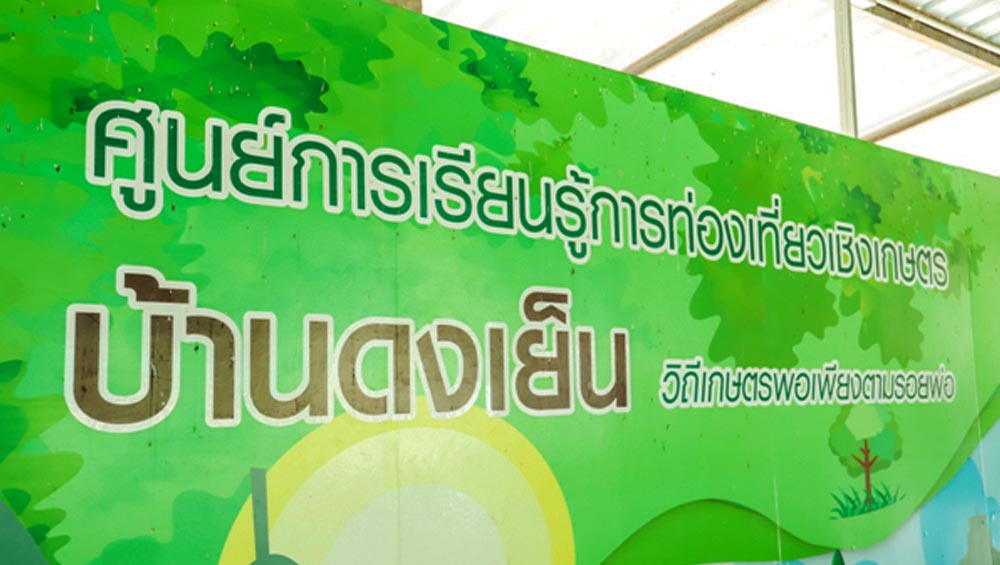
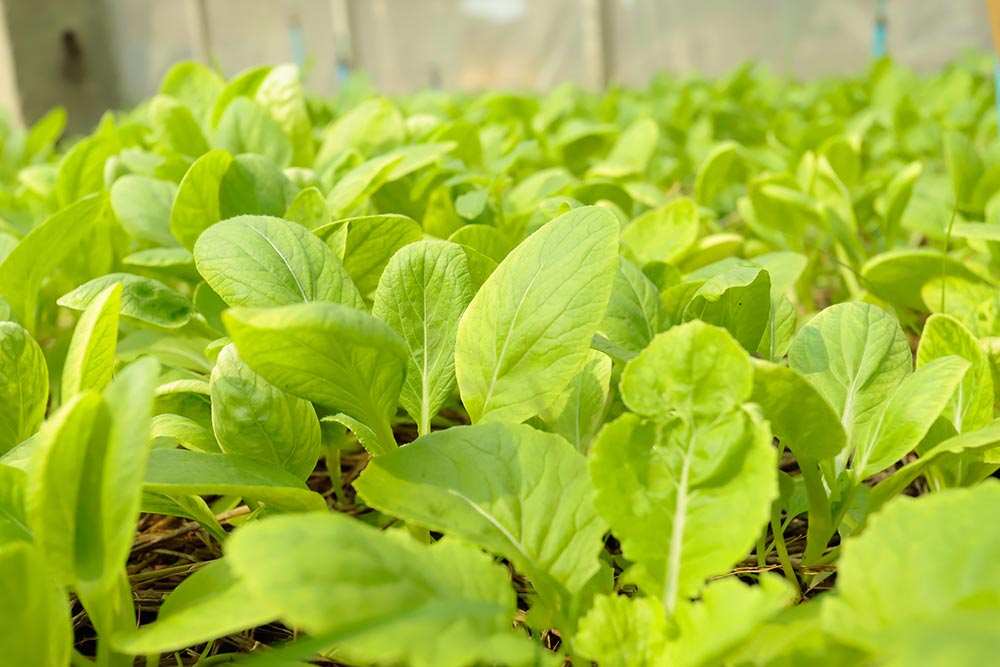
Baan Dong Yen Community: Organic Farming and Local Ways of Life
Back in the day, Baan Dong Yen was a settlement of Lao Krang ethnic group which had emigrated from Laos during the reign of King Rama III. Their livelihood and cultures have been passing down from one generation to another generation. Nowadays, villagers of Baan Dong Yen are still living their simple lives. In each evening after finishing with their work on vegetable farms and rice paddy fields, family members will gather around for dinner. Such a simple yet beautiful life!

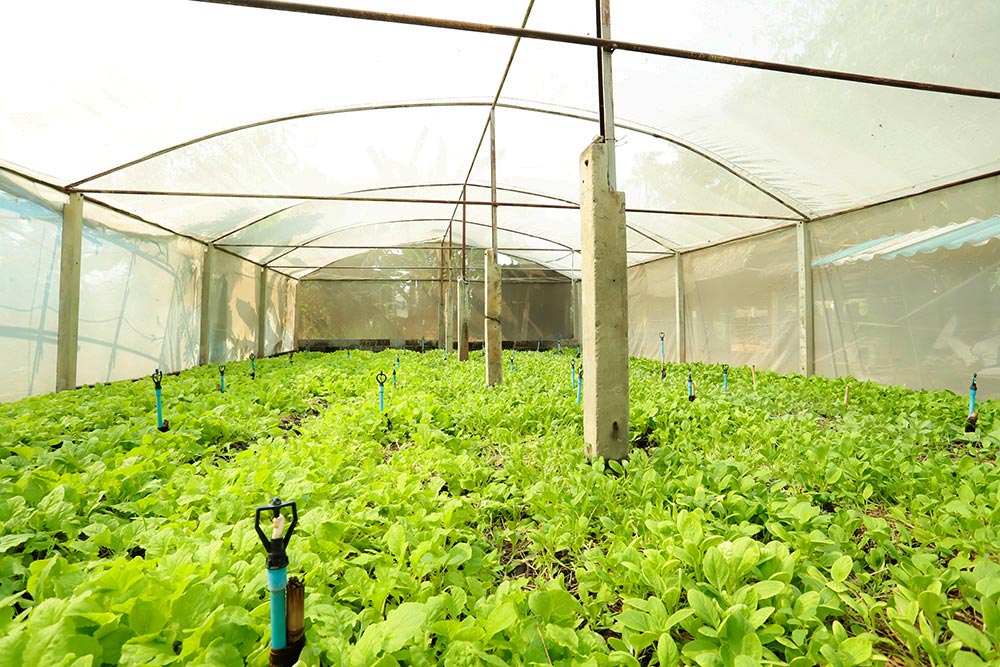
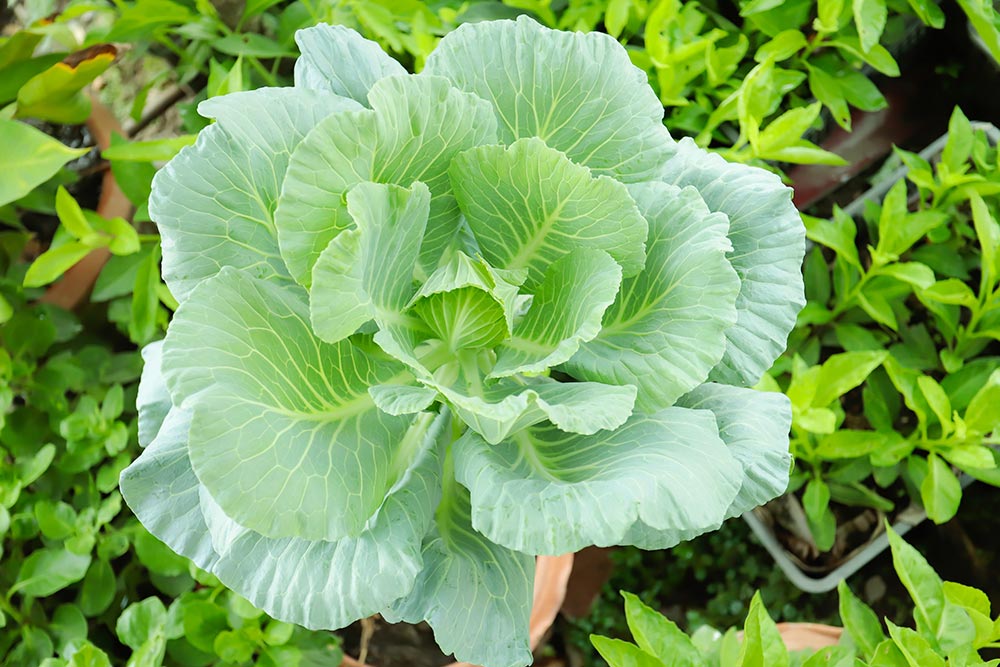
Their local ways of life are deeply connected with agriculture and farming. Each household has their own organic vegetable farms with zero use of pesticides and other chemicals. They also even make their own fertilizers. Later on, they have started to sell a surplus of their homemade products and received positive feedbacks as well as seeing increasing needs from consumers. Eventually, Baan Dong Yen community has since then developed into a learning center of organic farming to educate and teach people who are interested.

Aunt Waew, a president of Dong Yen’s Agroforestry Small Community Enterprise, is one of the initiators who encourages Dong Yen villagers to practice organic farming and use no chemical in growing crops. Their organic farming has transformed itself into a sustainable tourism which brings joy and earnings back to the villagers. There are bicycles available for tourists to ride around the community and learn how the organic farming is done. The tourists will be able to see how each household uses waste materials e.g. old buckets, washing bowls, and baskets as flowerpots for growing various kinds of vegetables. The villagers will take a really good care of their plants by watering and giving them fertilizers made naturally of earthworms and animal manure. Thus, the vegetables and plants grown in this community are entirely free of toxic chemicals and fruitful all year long.

“Every day at Baan Dong Yen, we always hear a music coming from our neighbor’s radio. They turn on the music for their hens. The music can help relieve stress and make the hens feel relaxed. Once they are in a good mood, they will lay big eggs for us”. Aunt Waew told us with a smile. She helped us crack a mystery of where the music is coming from.
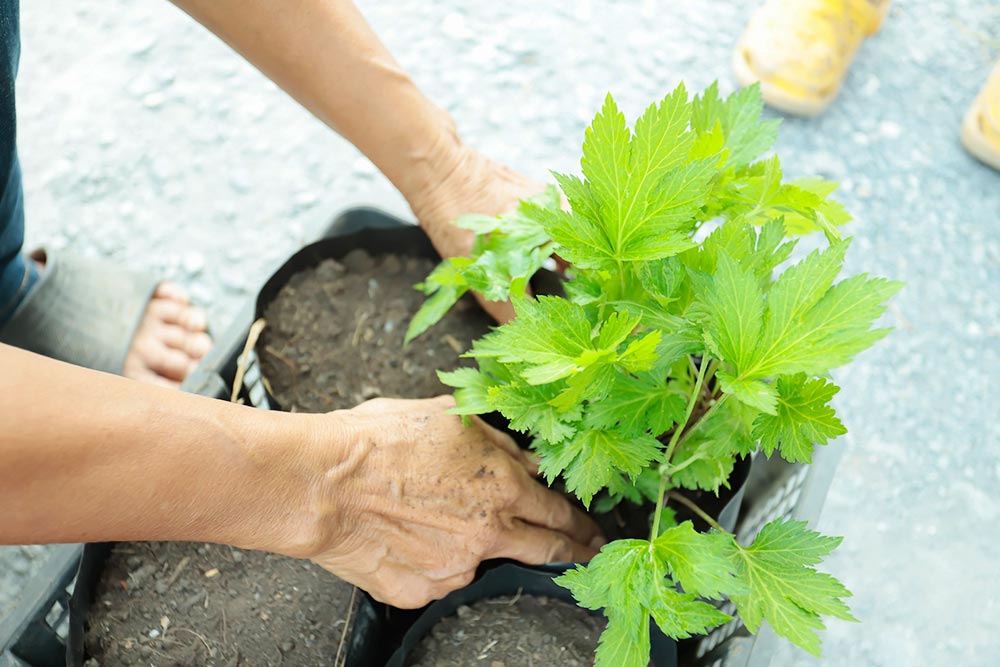
Aunt Waew also told us about a starting point of organic farming at Baan Don Yen. Back in 2013, twelve villagers from five families, Aunt Waew included, came together to help grow vegetables. The outcomes turned out satisfactory as the vegetables yielded them a lot of fresh produce. Later in 2015, more and more villagers started to join the group and grow vegetables. In that same year, Aunt Waew and some of the group members have had a chance to go on field trips to learn about the organic farming from several different places. These trips have sparked their ideas to arrange community-based activities for tourists at Baan Dong Yen, namely growing vegetables in baskets (no chemicals), growing sunflower sprouts, making mushroom culture, growing climbing vegetables, etc.

Not only is Aunt Waew practicing the organic farming methods, the other group members are also doing the same thing. Some villagers are growing Indian oyster mushroom in standardized greenhouses. Some are farming catfish in cement ponds. Some have free-range chicken farms where chickens can roam freely outdoors. These chickens are stress-free and, therefore, lay highly nutritious eggs. Apart from selling these fresh produce within the community and at wet markets, tourists can also purchase these products and bring them back home or they can request the villagers to cook for them using these organic home-grown ingredients.
“A highlight dish here is a moonflower stir-fry. A moonflower is one of the local plants of Baan Dong Yen community which can be used as an ingredient in a number of dishes. Eating the moonflower stir-fry with hot steamed rice is very delicious! It is definitely a must-try here”.
At this moment, Aunt Waew can confidently say that residents of Baan Dong Yen community have earned extra incomes from the organic farming on top of their main incomes from their full-time jobs. Baan Don Yen’s organic farm is always ready to welcome tourists and visitors to learn about organic farming and get closer to nature. It is not far from Bangkok so it is very easy and convenient to visit the farm.

In the past, Baan Don Yen community relied on a chemical-based agriculture which had taken a toll on the villagers’ health. Once they have begun to follow the organic farming methods from the King Rama IX’s philosophy, everything has since significantly improved. The villagers here like to keep exchanging knowledge and bringing their organic fresh produce to sell at local markets. These reasons attract people who are interested in organic farming to visit Baan Dong Yen to learn from the real example. If you come here, you will find that everyone in the community is amazingly friendly and willing to make your visit a great experience!



 Share
Share
 1701395640
1701395640



